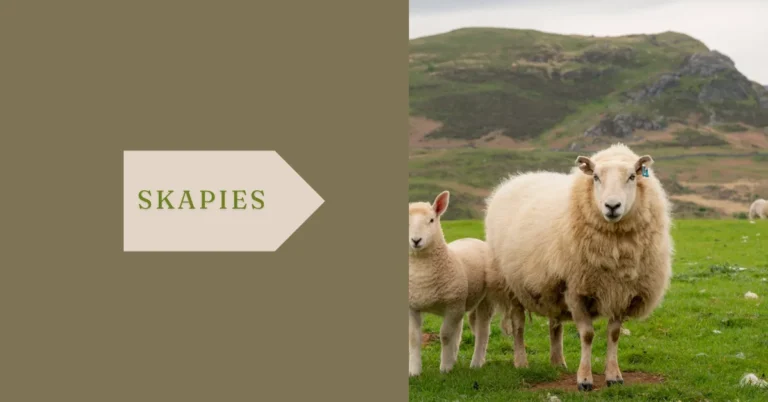Have you ever encountered the term “skapies” and wondered what it really means? This intriguing word has sparked curiosity across various communities, leaving many to ponder its origins and significance. From art to literature, skapies embodies a range of interpretations that can leave anyone scratching their head or diving deep into exploration.
As we embark on this journey together, we’ll unravel the layers of meaning behind skapies. Whether you’re familiar with the term or hearing it for the first time, prepare to discover how it resonates in contemporary culture and beyond. Let’s dive into the fascinating world of skapies!
The Origin of the Word Skapies
The term “skapies” has a rich and somewhat mysterious history. Its roots can be traced back to various cultural influences, making it difficult to pinpoint a singular origin. Some linguists suggest that it may derive from an amalgamation of local dialects, while others propose connections to ancient languages.
In certain contexts, skapies has been adopted within specific communities, evolving its meaning over time. The term reflects both the fusion of ideas and the unique social landscapes from which it emerged.
As globalization continues to shape language, skapies finds itself in discussions across different cultures. This adaptability not only showcases its versatility but also highlights how words can morph based on societal changes and interactions among diverse groups.
Different Interpretations and Definitions
The term skapie,s has woven itself into various aspects of culture and language, leading to a spectrum of interpretations. At its core, it’s often associated with community and identity.
Some see it as a marker of belonging. It encapsulates shared experiences within specific groups. This perspective highlights the social bonds created through this unique concept.
Others interpret skapie,s more abstractly, viewing it as an emotional state or mindset. In this context, it represents freedom—an escape from societal norms and expectations.
In literature and art, skapie,s can signify transformation or rebellion against conformity. Artists frequently utilize the term to explore deeper themes of individuality versus collective identity.
These diverse meanings contribute to the richness of the word in today’s dialogue. The layers behind skapie,s invite curiosity, prompting deeper exploration among those who encounter it.
Cultural Significance of Skapies
Skapie,s holds a unique place in various cultures, often representing the intersection of tradition and modernity. Its roots can be traced back to specific regional practices that highlight community values and social cohesion.
In many societies, skapie,s is more than just a term; it embodies shared experiences. It reflects rituals that connect generations, preserving stories through oral traditions or performance art.
Artisans and creators frequently draw inspiration from the concept of skapie,s. Their works capture its essence, weaving vibrant narratives that resonate with audiences on multiple levels.
Moreover, the symbolism behind skapie,s can vary widely. Some view it as a celebration of identity while others interpret it as a critique of societal norms. This multiplicity adds depth to its cultural significance, allowing for rich discussions across different platforms.
Skapies as a Symbol in Art and Literature
Skapie,s have emerged as a compelling symbol in various artistic expressions. Artists often employ this term to evoke themes of identity and transformation. Through vivid imagery, skapie,s highlight the complexities of human experience.
In literature, authors use skapie,s to explore societal norms and personal struggles. Characters embodying skapie,s challenge conventions, pushing boundaries of understanding and acceptance. These narratives resonate deeply with readers seeking connection.
Moreover, visual artists capture the essence of skapie,s through bold colors and abstract forms. Their works provoke thought and invite interpretation, creating dialogue around cultural significance.
The versatility of skapie,s allows them to transcend traditional meanings. They become vessels for both personal reflection and collective consciousness within different communities. Each representation adds layers to an already rich tapestry woven by diverse creators across time periods and styles.
Modern Usage and Evolution of the Word
The term “skapie,s” has seen a fascinating evolution in recent years. Initially rooted in niche communities, it has begun to permeate mainstream culture. Social media platforms play a key role in this shift, allowing diverse interpretations to flourish.
As users adopt the word, its context shifts dramatically. Some embrace “skapie,s” as an emblem of creativity and individuality. Others use it ironically or even critically, showcasing how language can adapt and transform based on societal trends.
Moreover, popular music and art frequently reference skapies, reinforcing its relevance today. Influencers often incorporate the term into their discussions about identity and expression.
This ongoing conversation shapes our understanding of what skapie,s means now compared to its origins. The fluidity of language mirrors cultural changes, making “skapies” not just a word but a living concept that evolves with time and society’s dynamics.
Controversies Surrounding the Term Skapies
The term “skapies” has sparked significant debate over the years. Some view it as a playful expression, while others see it as derogatory. This duality leads to heated discussions about its appropriateness in various contexts.
Critics argue that using “skapies” perpetuates negative stereotypes. They believe such labels can be harmful and divisive, particularly within marginalized communities.
On the other hand, enthusiasts celebrate its cultural roots. To them, “skapies” is more than just a word; it’s an emblem of identity and resilience.
Social media has amplified these controversies too. Online platforms serve as battlegrounds where users passionately defend or denounce the term.
As conversations evolve, so does public perception of “skapies.” Its meaning may shift depending on who uses it and how they choose to frame their narrative.
Conclusion: Understanding the Complexities of Skapies
Delving into the world of skapies reveals a rich tapestry woven from history, culture, and evolving language. The term’s origins provide insight into its first uses and meanings, often steeped in local traditions. Over time, interpretations have varied greatly, reflecting different cultural contexts.
The significance of skapies extends beyond mere definition; it embodies values that resonate within communities. In art and literature, skapies serves as a powerful symbol—capturing emotions and stories that evoke deep connections among people.
As we navigate modern usage, it’s clear that the word has transformed significantly. New generations are reshaping its meaning while grappling with controversies surrounding its applications. These debates underscore how language evolves alongside society’s values.
Understanding skapies requires embracing these complexities. Each layer adds to our appreciation of not just the word itself but also what it represents—a dynamic interplay of tradition and modernity shaped by collective experiences.
FAQs
Q: What does “skapies” mean?
Ans: “Skapies” means “sheep” in Afrikaans, but it also carries cultural and symbolic significance in South Africa.
Q: Why is “skapies” culturally important?
Ans: The term “skapies” represents more than just the animal; it is embedded in South African traditions and artistic expressions.
Q: How has “skapies” influenced South African art?
Ans: “Skapies” often appears in art and crafts, symbolizing heritage and connection to the land.
Q: What historical significance does “skapies” have?
Ans: Historically, “skapies” reflects the pastoral lifestyle and agricultural practices of South African communities.
Q: Can “skapies” have different meanings?
Ans: while it literally means “sheep,” “skapies” can also symbolize cultural values and local traditions beyond its basic definition.

